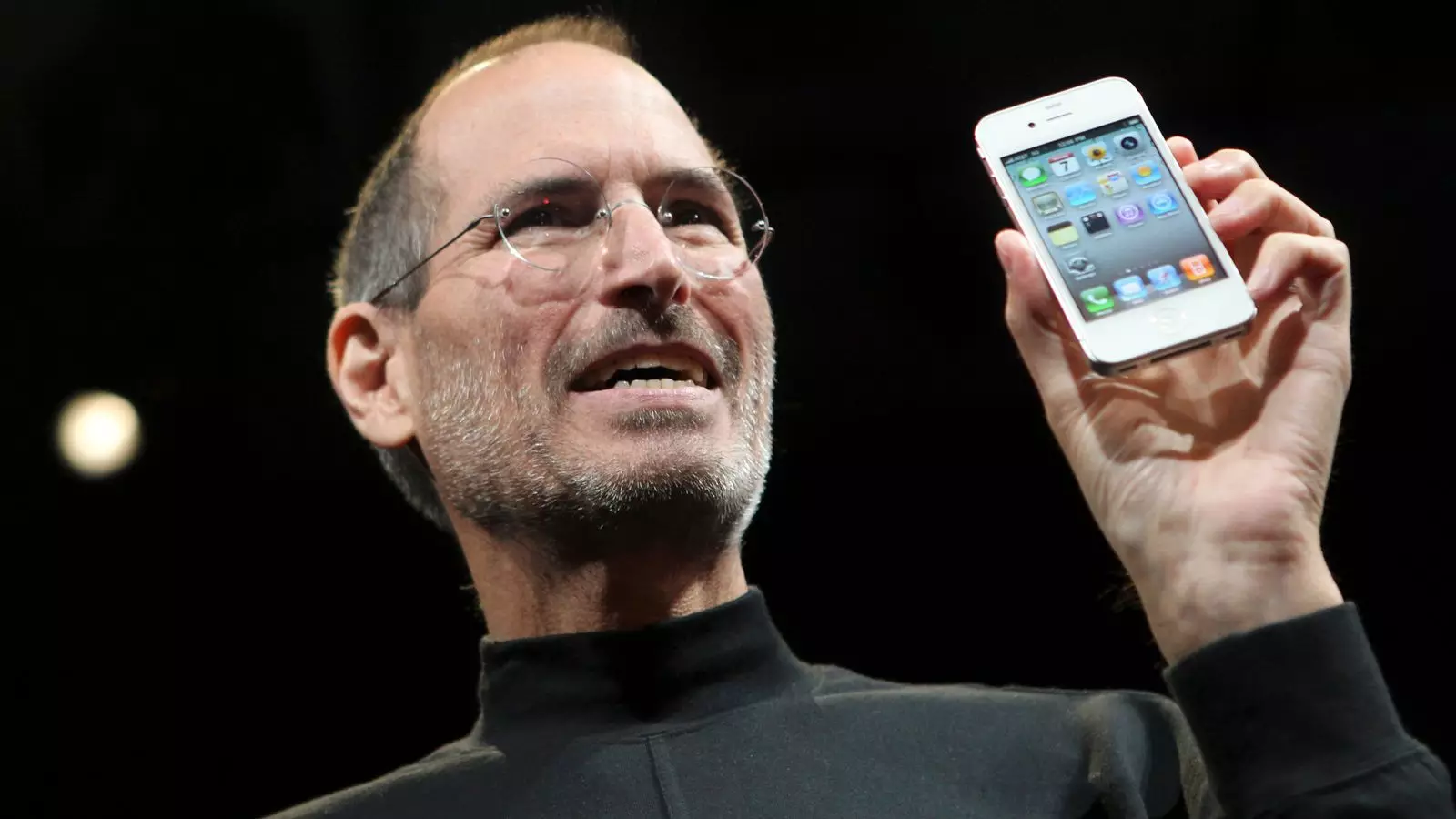The British political landscape is rife with comparisons and allegories, but when Science and Technology Secretary Peter Kyle likened Chancellor of the Exchequer Rachel Reeves to the legendary Steve Jobs, he set the stage for a narrative brimming with innovation and ambition. If we are to take this comparison seriously, it warrants deeper analysis. Are we truly witnessing a nascent renaissance in the UK economy akin to Apple’s explosive resurgence under Jobs? This is a vital question that every discerning citizen must ponder as the government gears up for its spending review.
Kyle’s assertion suggests that Reeves isn’t merely another bureaucrat trying to navigate fiscal waters but rather a visionary determined to chart a course to economic vitality. Jobs transformed Apple from the brink of bankruptcy into a powerhouse of creativity and profitability through groundbreaking products. Can Reeves summon the same audacity to revolutionize the UK economy? A hopeful perspective would argue that with strategic investments and reforms, she could indeed spearhead transformative change.
Investment in Innovation and Science
The recent announcement of an £86 billion package for the science and technology sector, coupled with a notable £500 million allocated to each English region for science projects, speaks volumes about the government’s intentions. This infrastructure investment brings forth the tantalizing possibility of innovation driving growth—not just in monetary terms, but also in social welfare. This could turn research into faster drug treatments and high-tech solutions from mere ideas into realities, thus potentially rejuvenating regional economies stifled by decades of austerity.
However, while the intentions may be noble, skepticism remains a necessary attitude. History has shown that grand investments often come with strings attached—or worse, with bureaucratic bloat that neutralizes their intended impact. Will these funds be utilized effectively, or will they succumb to the lethargy of governmental processes? The difference between monumental success and dismal failure often hinges on such execution.
The Fiscal Tightrope
It is imperative to note that while the talk of unprecedented spending is encouraging, the adherence to self-imposed fiscal rules raises eyebrows. Kyle’s statement about refraining from borrowing for day-to-day expenses feels like walking a tightrope over an abyss. Labour’s historical entanglements with austerity and fiscal prudence complicate current narratives. Yes, some departments may receive much-needed funding, but others could face the harsh reality of budget cuts. This creates a paradox of growth against sacrifice—an uncomfortable situation for any government.
Reeves’ strategy seems to mirror that of Jobs, where the focus is placed on innovation to drive profitability. Yet, let’s ask the tough questions: Who bears the brunt of these financial constraints? Are the most vulnerable among us going to suffer in the name of economic overhaul? While high-tech investments are laudable, they cannot exist in a vacuum devoid of social responsibility.
Winter Fuel Payments and Political Backlash
Then enter the contentious topic of winter fuel payments. The decision to roll back universal payments—a significant cut in assistance—has planted a thorny issue in the government’s narrative. With rising energy costs and increasing financial strain on households, any cutback is bound to evoke strong emotional responses. Keir Starmer’s flip-flop on extending eligibility, particularly for those on pension credit, highlights the precarious balance between fiscal responsibility and public goodwill. This is the quintessential dilemma for any centrist liberal government: how to stimulate the economy while safeguarding its most vulnerable citizens.
Discussions around spending should not merely be about numbers and projections; they must first consider the implications for people’s lives. The dissonance between ambitious fiscal goals and the reality of people’s lived experiences encapsulates a broader moral debate.
A Divided Economy Requires Cohesive Solutions
Ultimately, while the vision to transform the economy is commendable, it must be rooted in pragmatism and social equity. The narrative of Rachel Reeves as the new Jobs offers a thrilling prospect for a new era in economic management. However, one cannot ignore the pressing need for a cohesive strategy that ensures all sectors of society benefit from this economic revival.
As the spending review looms, the real challenge will lie not just in the allocation of funds but in the government’s ability to balance innovation with compassion, all while navigating the inevitable backlash of public sentiment. In this confluence of hope and realism, the trajectory of Rachel Reeves’ economic journey will unfold—a journey laden with potential yet fraught with responsibility.

Leave a Reply